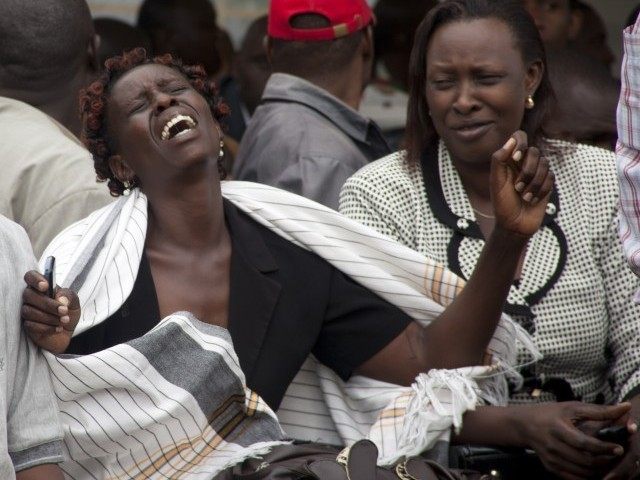The Kenyan government has arrested Hassan Mahat Omar, an Islamic cleric accused for years of supporting and recruiting for the terrorist group Al-Shabaab, for his role in helping fundraise to orchestrate the attack on Garissa University that left 148 Christian students dead earlier this month.
Kenya’s The Standard reports that Omar, who was out on bond, has been arrested again and will be kept behind bars for at least 30 days until legal proceedings are established. Omar, the newspaper adds, is “suspected to be radicalising youth and facilitating their exodus to Somalia to join the outlawed terror group.”
Omar was previously arrested with his wife, Fardosa Mohamed Abdi, after they were found in possession of two hand grenades believed to have been given to them by Al Shabaab members.
He is being accused along with Ali Hassan Gure, another operative believed to have been involved in the Garissa attack. “They are high-profile personalities and are believed to be key terrorism financiers in the country,” an unnamed prosecutor told Kenya’s The Nation. That newspaper reports that Omar is believed to have been in “constant communication” with members of Al Shabaab in Somalia, where the terrorist group is based.
Omar has been on the radar of international anti-terrorism officials for years. In 2011, Omar was identified as a “senior leader” of Al Shabaab by the United States Department of the Treasury and designated a “global terrorist,” which froze any assets Omar had to which the Treasury Department had access. At the time, The Long War Journal identified him as “a senior leader, ideologue, recruiter, and fundraiser.” The Investigative Project on Terrorism noted that Omar was a “key leader” to Al Shabaab because of his ability as a sheikh to persuade young men to leave their peaceful lives and join the terrorist group, at a time when manpower was essential to the continued operations of the group.
Kenya has announced that its counterterrorism efforts would begin to focus more intently on clerics and Islamic sheiks preaching radical Islam. “We will be putting all our Imams and preachers, be it in Northeastern, at the Coast, in Nairobi or anywhere in Kenya, to speak with one voice with the view of taking inventory of all mosques and madrasas,” said Adan Wachu, secretary general of the nation’s Islamic council, earlier this month.
The Kenyan government has also been working swiftly to bring those believed to have been involved in the Garissa University attack, in which four gunmen stormed the campus and killed 148 students after confirming each was a Christian, to justice.
In addition to Omar, the Kenyan government has indicted nine security officials in Garissa County. “I am convinced of the need for thorough investigations into the terrorist attack on the Garissa University College to establish possible criminal culpability of individual officers or relevant security committees,” said Interior Cabinet Secretary Joseph Nkaissery in relation to the arrests. The investigations into senior officials will focus on the potential for criminal negligence.
That negligence claim is bolstered in particular by reports that authorities had been warned that Al Shabaab was planning to attack Garissa University, and Garissa County only dispatched four police officers to the campus that day, anyway. “The County Intelligence and Security Committee (CISC)… had recommended that eight police officers be deployed to the areas named as terrorist targets but this did not happen due to the shortage of police officers,” reports The Standard.

COMMENTS
Please let us know if you're having issues with commenting.